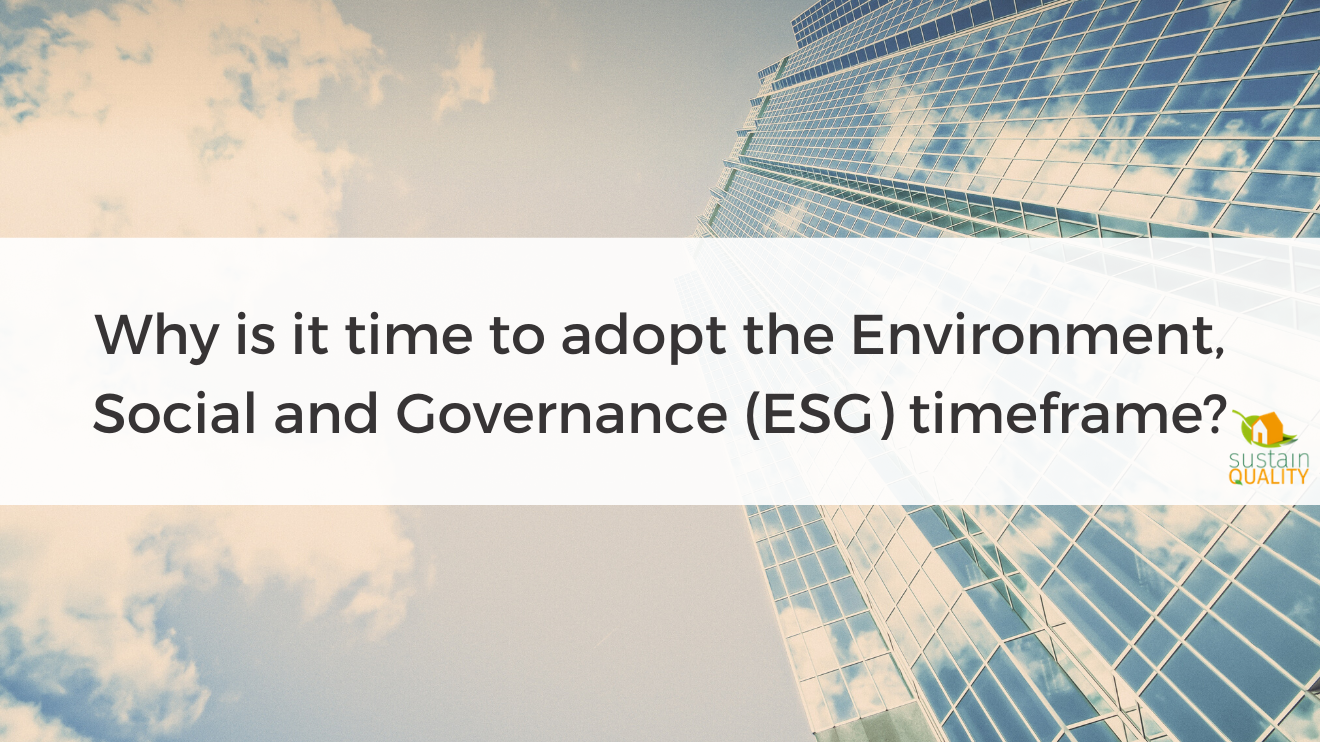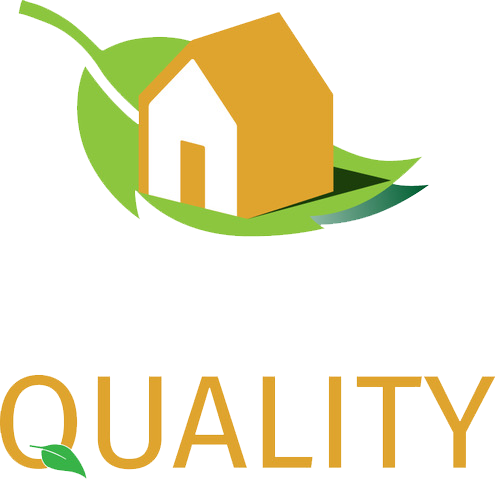Recent events have brought about a significant change in the world; in the way we live, work and interact. Whilst this has significantly impacted industry, those of us who have a ‘glass half full’ outlook will recognise the positive impact that this large-scale lockdown is having/has had on our environment.
Studies have shown that pollution and greenhouse gas emissions have fallen across continents and countries. However, we must question: Is this just a fleeting change, or could it lead to longer-lasting benefits to the environment?
What to expect from this article
This article explores why now is the time to adopt an ESG timeframe-the three central factors in measuring the sustainability and societal impact of an investment in a company or business.
According to research conducted by Robert Eccles, a visiting professor of management practice at Saïd Business School at the University of Oxford, ESG is at the forefront of everyone’s mind; it’s the issue that the world’s largest investors care about right now, and it’s the biggest asset that management firms and government pensions funds want to see from their portfolio companies.
With that in mind, this article sets out to develop key definitions of ESG and an insight into Sustain Quality’s process in carrying out an ESG audit.
What is ESG?
ESG refers to the consideration of environmental, social and governance factors alongside financial factors in an investment decision-making process.
The term is often used in conjunction with sustainable investing, socially responsible investing, mission-related investing or screening.
The historical evolution of ESG and why it’s so important today
The practice of ESG began in the 1960s when investors began taking a more critical stance on business activities such as tobacco production, or the involvement in the South African apartheid regime.
This practice of ‘socially responsible investing’ meant that investors would exclude companies who took part in activities similar to those highlighted above.
The picture is largely different to what we see today and ‘sustainability reporting’ as we see it today started to take shape in the late 1900s. It’s important to note, however, that this practice certainly wasn’t seen as particularly ‘mainstream’ or significant. Companies would, for example, make more of an effort turn off the water and lights, but this wasn’t particularly integrated into the business.
Fast forward to today…
Today, people are beginning to realise that these environmental, social, and governance issues mattered to financial performance, both in the corporate community and the investment community, with many investors looking to incorporate ESG factors into the investment process alongside traditional financial analysis.
Sustain Quality’s role in ESG audits
At Sustain Quality, we combine data and principles-based assurance. This ensures that we provide feedback that is both reliable and transparent, moving the emphasis away from a ‘box-ticking’ exercise to a more meaningful assessment. The main aim here is to give a complete, honest and balanced overview.
To provide a simple summary, Sustain Quality will provide the following service to businesses:
- Assessment of a company’s material ESG risks, liabilities and opportunities
- Benchmarking current company ESG policies, procedures and performance against peers and best practice within the sector
- Assessment of compliance with national regulations and internal treaties
- Insight into how the company’s ESG performance could affect assets including reputation, brand value, trust and relationships
- Estimations based on potential liabilities and how this could affect costs, cash flow and deal timeline
- Recommendations on adjustments to the valuation
- Overview of how emerging social and environmental trends are likely to affect the company
We’ve highlighted the last point as the Coronavirus pandemic is classed as a megatrend, and one that is likely to have impacted your company.
Tools for task implementation
By now, you will have an understanding of what ESG audits are, why they’re important, and the role that Sustain Quality plays in this process. We will now explore some of they key tools used to carry out the thorough and comprehensive service.
Please note: this is a high level overview. For a more detailed insight into each process, make sure you click on the links within each section, or talk to an expert for further insight.
Eco Audits
An eco audit is carried out by one of our professionally trained environmental auditors. It initially assesses the environmental performance of your organisation, highlighting what you’re doing right and providing recommendations for areas which can be improved.
The process involves tailored workshops for your team and a half-day follow up visit a year later to understand whether the changes implemented have impacted organisation. To find out more, click here.
BREEAM In-Use
BREEAM in use can be used to assess all existing non-domestic building types against nine environmental categories. These include:
- Energy
- Water
- Transport
- Management
- Waste
- Pollution
- Health & Well-Being
- Land Use
- Ecology and Materials.
From there, the process is broken into three parts. This includes Asset Performance, Building Management, and for offices only, Occupier Management.
The performance can be measured for a whole building or part of the asset, such as a single tenant space.
Fitwell
A Fitwell certification is a valuable sustainability asset that recognises the health of your building. The process is broken into twelve categories. They are:
- Building Access
- Outdoor Spaces
- Entrances + Ground Floor
- Stairwells
- Indoor Environments
- Workspaces
- Shared Spaces
- Water Supply
- Cafeterias + Prepared Food Retail
- Vending Machines + Snack Bars
- Emergency Procedures
Fitwel certifications are given either 1, 2, or 3 stars based on the number of points they earn.
One-star (90-104 points)
Two-stars (105-124 points)
Three-stars (125-144 points)
Well Building Standard
WELL measures attributes of buildings that impact occupant health by looking at seven factors or Concepts. These include:
- Air
- Water
- Nourishment
- Light
- Fitness
- Comfort
- Mind
Many WELL Features intended to improve health are supported by existing government standards or other standards-setting organizations.
Some Features are intended to change behaviour through education and corporate policy or culture, and provide information and support for making positive lifestyle choices.
ISO Accreditation and Consultancy
Whether it’s customer satisfaction objectives, production objectives or environmental objectives, ISO certification is a statement to your stakeholders and employees that your business wishes to operate to a set framework in order to achieve such objectives.
By setting yourselves the task of maintaining an external certification you are proving the company’s commitment to these objectives as well as increasing the credibility and customer confidence in the brand / service or product.
GRESB
GRESB assesses and benchmarks the ESG performance of real assets, providing standardised and validated data to the capital markets.
The Assessments are guided by what investors and the industry consider to be material issues in the sustainability performance of real asset investments and are aligned with international reporting frameworks.
Assessment participants receive comparative business intelligence on where they stand against their peers, a roadmap with the actions they can take to improve their ESG performance and a communication platform to engage with investors.
Investors use the ESG data and GRESB’s analytical tools to monitor their investments, engage with their managers, and make decisions that lead to a more sustainable real asset industry.
RESET™ Air
“Pollution knows no borders” (Margaret Mead, 1980). One of the 9 foundations of a healthy building is Air Quality.
It advocates that we choose supplies, furnishings and building materials with low chemical emissions to limit sources of volatile and semi-volatile organic compounds.
- Check for legacy pollutants such as lead,
- PCBs and asbestos.
- Limit vapor intrusion by using a vapor barrier.
- Maintain humidity levels between 30-60% to mitigate odour issues.
- Conduct annual air quality testing.
- Respond to and evaluate occupant concerns.
RESET™ Air is key to keeping engineering control and healthy building strategies at its best. It provides a certification standard for continuous monitoring of the indoor air quality.
Indoor Air Quality constantly change and is not easily detectable by human senses. Therefore, RESET™ Air continuous monitoring standard allows robust data analysis and deployment of action plans that protect the health of occupants.
The quality of the air influences decision making. The impact of CO2 concentration on human decision making has been found to be very important (Satish, U. et al. Is CO2 an Indoor Pollutant? Direct Effects of Low-to-Moderate CO2 Concentration on Human Decisions-Making performance December 2012).
RESET™ Air provides a tangible return on investment for offices and property owners. For offices, RESET™ Air not only enables healthier spaces, but also more productive spaces. For property owners, RESET™ Air empowers the communication of healthier, more productive buildings to prospective tenants. The RESET™ Air Certification is designed to be scalable and affordable, while delivering actionable results.
RESET™ Air rethinks and simplifies IAQ project certification by setting standards for documenting, communicating and certifying indoor air quality using continuous monitoring.
There are simply air quality targets across critical parameters which must be continuously monitored during hours of occupancy.
Currently, parameters include: PM2.5, TVOC, CO2, CO, Temperature, and Humidity.
Conclusion
The world faces numerous sustainability challenges that have not been seen previously. Flood risks and sea level rise, privacy and data security, and demographic shifts and regulatory pressures are ever-present in our society.
With the coronavirus pandemic presenting new risk factors for investors, now is the time for companies to consider an ESG timeframe.
Sustain Quality is committed to helping businesses improve the sustainability of their companies which-in turn-will enable them to be more attractive to investors.
For more information on how Sustain Quality can provide you with a comprehensive ESG assessment, get in touch today.
Want to find out more? Fill in the form below and an expert will be in touch soon!
About Us
We are a friendly team of Engineers delivering Sustainability and Building Compliance Solutions for developments in the Commercial and Residential sectors, which include Energy Statements, Noise Impact and Vibration Assessments, BREEAM Assessments, and Air Quality Assessments in the Environmental, Social and Governance sectors.
Contact us at:
Sustain Quality Ltd
PO Box 393
COBHAM
KT11 3EL
info@sustainquality.co.uk
01372 438039






